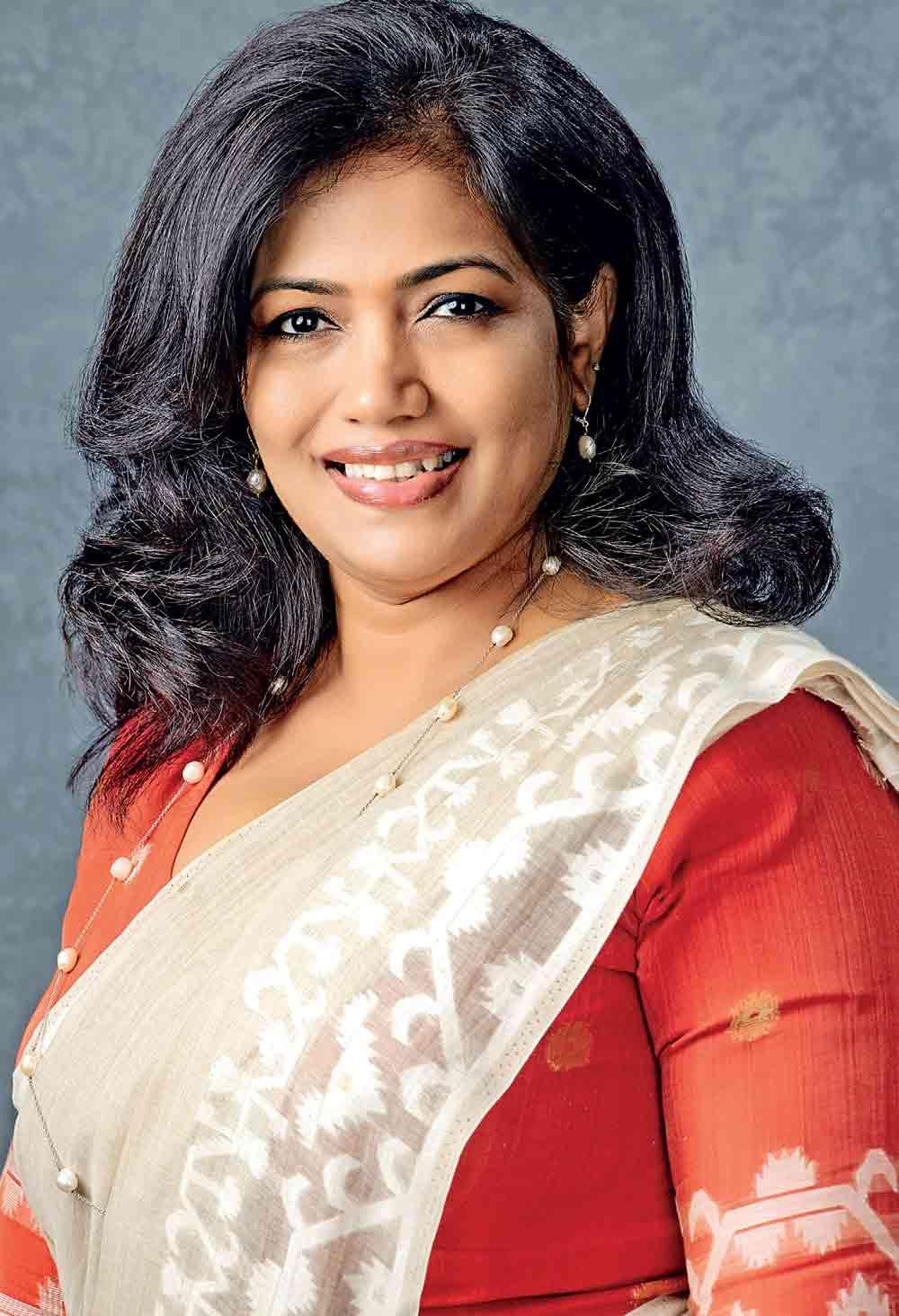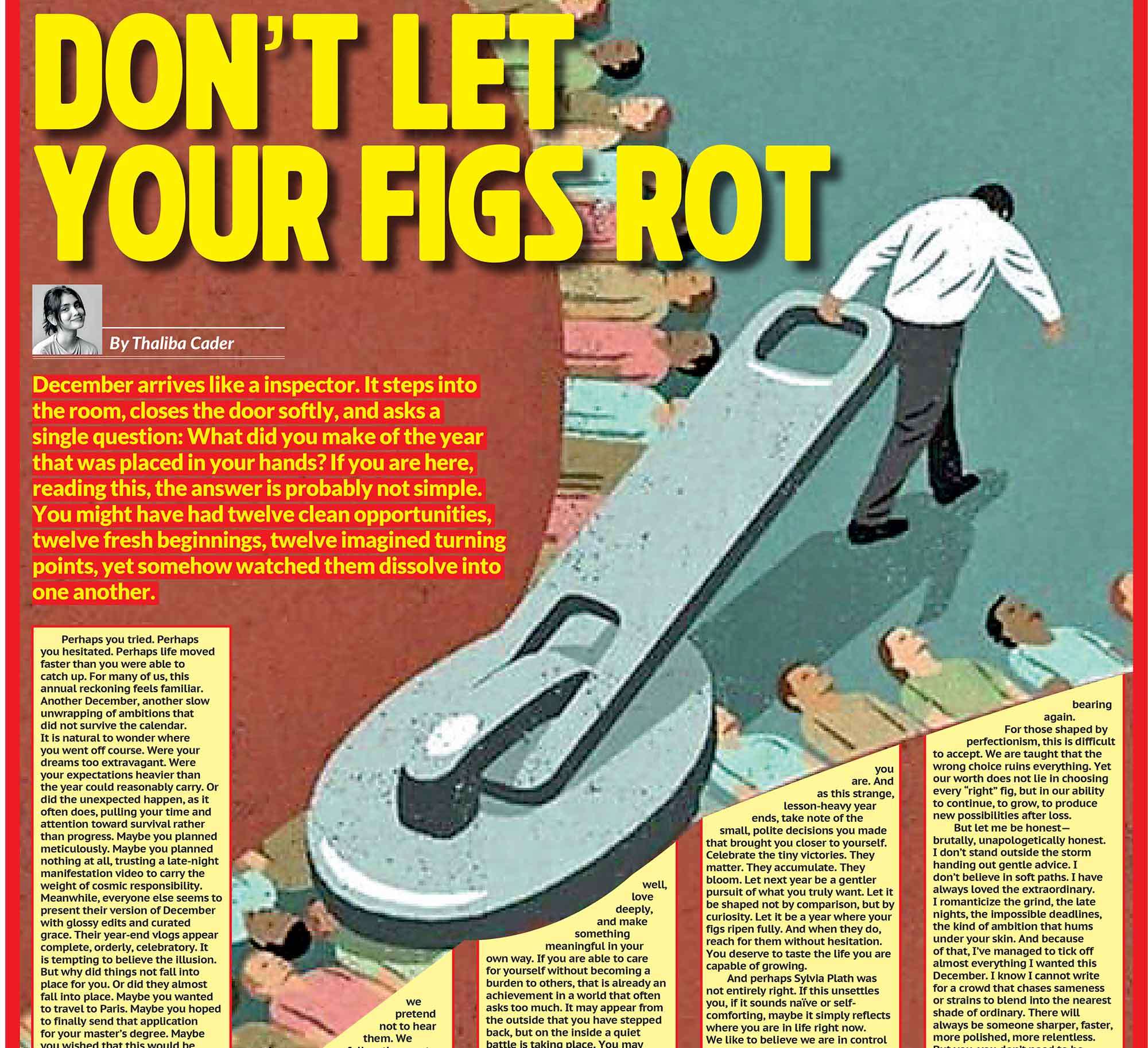
 In Sri Lanka’s fast-evolving business landscape, where resilience often makes the difference between survival and success, Niluka Sanjeewani Weligamage stands out as a leader who has built more than just companies; she has built pathways of empowerment. As the Founder and CEO of Dazzle and Sevi by Dazzle, Niluka has transformed her entrepreneurial journey into a mission that uplifts rural women artisans while redefining corporate gifting and sustainable merchandise in the country. From her early years at Rathnawali Balika Vidyalaya in Gampaha, where the values of discipline and service were ingrained in her, to representing Sri Lanka on global platforms such as the Dubai Expo and Style BKK, her journey has been marked by courage, creativity, and conviction. Balancing life as a devoted mother of two and a dynamic CEO, Niluka continues to push boundaries, proving that purpose and profit can not only coexist but also thrive together.
In Sri Lanka’s fast-evolving business landscape, where resilience often makes the difference between survival and success, Niluka Sanjeewani Weligamage stands out as a leader who has built more than just companies; she has built pathways of empowerment. As the Founder and CEO of Dazzle and Sevi by Dazzle, Niluka has transformed her entrepreneurial journey into a mission that uplifts rural women artisans while redefining corporate gifting and sustainable merchandise in the country. From her early years at Rathnawali Balika Vidyalaya in Gampaha, where the values of discipline and service were ingrained in her, to representing Sri Lanka on global platforms such as the Dubai Expo and Style BKK, her journey has been marked by courage, creativity, and conviction. Balancing life as a devoted mother of two and a dynamic CEO, Niluka continues to push boundaries, proving that purpose and profit can not only coexist but also thrive together.
Q You began your education at Rathnawali Balika Vidyalaya, Gampaha. How did your school experience shape your values and outlook on life?
At Rathnawali, we were guided by the school’s vision of “a noble generation of women, full of virtues, nurtured through a complete education that enhances their brilliance.” That ideal shaped me deeply. My school years instilled discipline, resilience, and a sense of service to others, while encouraging us to pursue both academic and personal excellence. It gave me the foundation that success is not only about individual achievement, but also about uplifting communities and contributing with integrity, principles that still anchor my journey as an entrepreneur today.
Q What inspired you to pursue Mathematics for your Advanced Level studies, and later an MBA specializing in Entrepreneurship and Innovation?
Coming from an academic background, I initially aspired to become an engineer, which is why I chose Mathematics for my A/Ls. However, over time I discovered that my real passion lay in taking on challenges in marketing and business. I realized that my true strength was creativity, finding unique solutions and building ideas into reality. As an entrepreneur, I wanted to complement that creativity with strategic knowledge, and that is what led me to pursue an MBA in Entrepreneurship and Innovation. It gave me the tools and frameworks to move forward with clarity and purpose.
Q What motivated you to establish Dazzle in 2006, and what was your vision at the time?
The birth of my first child was a turning point. I wanted the flexibility to spend more time with her while pursuing a career that allowed me to create on my own terms. I wasn’t content to simply take orders or work under someone else; I was eager to explore opportunities where I could apply my creativity and independence. I noticed a gap in the Sri Lankan market for dependable, innovative corporate merchandise, and that became the foundation for Dazzle. From day one, my vision was to build a company that clients could trust for on-time delivery, quality assurance, and creative solutions, while steadily raising local standards to compete on the international stage.

Q Running a business in Sri Lanka during times of economic crisis and import restrictions must have been tough. How did you stay resilient and adapt?
That period was truly the turning point in my entrepreneurial journey. With marketing budgets constrained and imports completely restricted, we hit rock bottom. My greatest concern was how to look after both my staff and my family. Instead of retreating, I chose to diversify. I began educating clients on the value of working with locally manufactured merchandise, showing them that quality and creativity could be achieved right here in Sri Lanka. This shift not only helped us survive the crisis but also sparked the creation of Sevi by Dazzle, a model built on empowering rural women artisans and positioning locally made, sustainable products for international markets. What began as a survival strategy has now become one of our proudest strengths.
Q Could you share the story behind the creation of Sevi by Dazzle?
Sevi by Dazzle was born at a time when I was rethinking our business model during the pandemic and economic crisis. As imports were restricted, I began working with our FMCG clients, such as HEMAS, Unilever, and Coca-Cola, to reimagine their promotional merchandise using locally made, sustainable alternatives. To deliver on these projects, we engaged rural women artisans, training them, maintaining strict quality standards, and building supply chains that could meet the demands of leading corporate clients. For many of these women, producing merchandise for household-name brands was their first opportunity to earn steady income and uplift their families. Today, Sevi stands as a bridge between Sri Lanka’s grassroots talent and the global stage, creating dignified livelihoods while helping major brands tell a more meaningful story through their merchandise.
Q How has working with rural women artisans transformed not only their lives but also the way you see your role as a business leader?
As a seasoned importer, I was comfortable running a strong business by sourcing and supplying merchandise from overseas. I had no prior experience working with rural communities. But once I began engaging with women artisans, I realized how strong, resilient, and resourceful they truly are, and also how many struggles they face in their day-to-day lives. That experience changed me. Today, my focus is no longer just on building a profitable business, but on using my industry knowledge and networks to uplift their livelihoods. My role as a leader has evolved into creating more opportunities for these women, ensuring they have consistent work, fair income, and the dignity of contributing their talents to both local and global markets.
Q You’ve taken Sri Lankan products to global platforms such as the Dubai Expo and Style BKK. What was it like representing the country at such prestigious events?
The Organic and Natural Product Expo Dubai 2024 was the very first exhibition I attended as an exporter. Until then, I had been to many exhibitions worldwide in the role of a buyer, but standing on the other side of the table, showcasing my own product range, was a completely different experience. It gave me immense pride to present Sri Lanka’s story of craftsmanship and sustainability on one of the biggest international stages. Every product carried not only the creativity of our team but also the resilience and skill of the rural women artisans behind them. Representing the country in that way was both humbling and empowering; it showed me that our local talent truly belongs on the global map.
Q Balancing life as a mother of two and a CEO is no easy task. How do you manage both roles without compromising either?
For me, it starts with clear boundaries and calendars. I time-block family first, then build the business around those non-negotiables. I’ve also cultivated a strong team who can take ownership and lead without me, which allows the business to grow independently of my constant presence. Most importantly, I am blessed with a very supportive husband, Prashantha Mahadevan. He is the pillar of my strength, my comfort, and my guide whenever I face struggles. That partnership, combined with disciplined planning, makes it possible to nurture both my children and my company without compromising either.
Q As a woman entrepreneur, what challenges have you faced in Sri Lanka’s business landscape, and what changes would you like to see?
Like many women entrepreneurs, I’ve faced challenges such as limited access to working capital, procurement systems that often favour larger players, and scepticism toward women-led ventures. Balancing these pressures alongside family responsibilities was not easy. But the support of my late father, my husband, and my children, along with a strong sense of purpose, gave me the resilience to keep moving forward. What I would like to see is a more enabling environment for women: gender-sensitive financing models, supplier diversity programs that open doors to women-owned businesses, and integrated export-readiness initiatives that combine design, compliance, and market access. These changes would not only level the playing field but also unlock the potential of countless women who, like me, are striving to balance family and business while contributing to the nation’s economy.
Q Finally, what is your long-term vision for Dazzle and Sevi by Dazzle, and how do you see your role in shaping Sri Lanka’s future through business and empowerment?
My vision is twofold: for Dazzle to remain Sri Lanka’s most trusted partner for corporate gifting and promotional solutions, and for Sevi by Dazzle to grow into a globally recognized, women-led sustainable brand. Over the years, my entrepreneurial journey has evolved into a mission to build businesses that empower families, uplift women, and showcase Sri Lankan talent to the world. I see my role as creating value chains that keep wealth within the country by generating dignified livelihoods, fostering export growth, and proving that purpose and profit can go hand in hand. Most importantly, I want to leave behind a legacy for my daughters, and for the next generation of Sri Lankan women, so they can be proud of the pathways we have opened and inspired to continue them.

Morning person or night owl? Night owl.
Your go-to stress buster? Watercolour painting.
A business leader you admire. Internationally, Ms. Indra Nooyi (Former CEO of PepsiCo).
Three words that describe you best? Creative, humble, resilient.
If not an entrepreneur, what would you have been? An interior architect.
First international fair you attended. Organic and Natural Product Expo, Dubai 2024.
One craft you personally love working with; batik, lace, or banana fibre? Banana fibre textiles.
A quote you live by. “The only way to do great work is to love what you do,” Steve Jobs.
One thing people don’t know about you. I’m actually a very emotional person who feels deeply and can get hurt easily, but I channel that sensitivity into empathy, which helps me connect with people and lead with compassion.
Biggest risk you’ve taken in business? Shifting from imports to local production during a crisis; trusting our women artisans could rise to the challenge. It became one of our greatest strengths.










